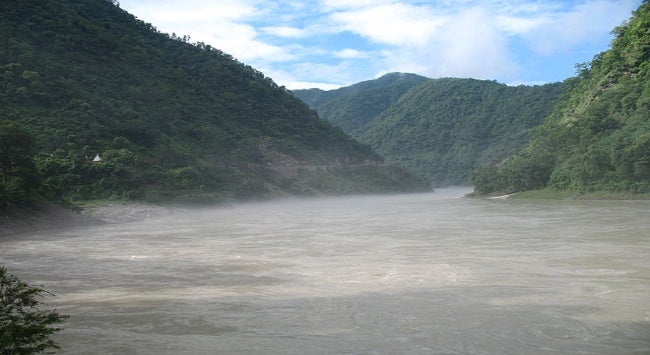Summary
More than the nature of India-Bangladesh ties, the water situation in the Indian state of West Bengal and the stand of the state’s Chief Minister Mamata Banerjee have major roles to play in any talks regarding the renewal of the Ganga/Ganges Waters Treaty between the two countries.
In February 2025, during a meeting with India’s External Affairs Minister S Jaishankar in Muscat, Oman, on the sidelines of the eighth Indian Ocean Conference, Bangladesh’s interim government’s Foreign Affairs Advisor Touhid Hossain “sought to initiate discussions for the renewal of the Ganges Waters Treaty signed in 1996”. In March 2025, the 86th meeting of the India-Bangladesh Joint River Commission (JRC) and Technical Committee on Ganga/Ganges water sharing was held in Kolkata in West Bengal. Such meetings are held thrice a year and are part of the structured engagement on the Ganga/Ganges water sharing.
In 1996, after a series of short arrangements, the Ganga/Ganges Waters Treaty (GWT) was possible because of three main reasons. First, then Bangladesh’s Prime Minister Sheikh Hasina had very close ties with the Indian establishment. Second, the coalition government in India under H D Devegowda had I K Gujral as foreign minister, whose Gujral Doctrine, first unfolded in a lecture at Chatham House in September 1996, underlined that India would take two steps forward for every single step taken by its South Asian neighbours such as Bangladesh, Nepal, the Maldives, Sri Lanka and Bhutan. Finally, the then Chief Minister of West Bengal, Jyoti Basu, supported the GWT, hoping that the treaty would facilitate better ties in other bilateral areas as well.
The GWT faced criticism in both countries. In Bangladesh, the Bangladesh Nationalist Party, the Jatiya Party and Jammat-i-Islami criticised the Hasina government for signing an ‘unequal’ deal favouring India. In India, the Indian National Congress, Communist Party of India (Marxist), despite support by Basu, and Bharatiya Janata Party (BJP) raised questions on various aspects of the GWT. The BJP even organised protest marches accusing the Devegowda-led coalition government of sacrificing the water interests of West Bengal by signing the GWT. Some opinions in Indian media contended that the GWT favoured Bangladesh based on old hydrological data.
According to a provision under Article XII of the Treaty, the GWT remains in force for 30 years and may be renewed by mutual consent Hence, it will expire in 2026. During Hasina’s visit to India in June 2024, the leaders from India and Bangladesh welcomed “the formation of a Joint Technical Committee to initiate discussions for the renewal of the Ganges Water Sharing Treaty of 1996”.
While the two countries are willing to engage in water-sharing matters, the critical issue is convincing West Bengal’s Chief Minister Mamata Banerjee. She had accused the Narendra Modi-led government of moving on the GWT without her consent. In a letter to the Indian prime minister, she stated that the GWT “…has huge implications for the people of West Bengal for maintaining their livelihood and that the water which is diverted at the Farakka Barrage helps in maintaining the navigability of the Kolkata port.” She further stated that she “…would like to bring to your [Modi’s] notice that river morphology has changed in the eastern part of India and Bangladesh over many years which has deprived West Bengal and negatively impacted the water availability in in the state.”
Banerjee’s changed position on the Teesta River waters sharing has kept the deal inconclusive. Under the draft of the interim agreement on the Teesta River waters finalised in 2011, it was agreed that India would get 42.5 per cent and Bangladesh would receive 37.5 per cent during the lean season from December to March. The remaining 20 per cent of the Teesta River waters would be reserved for environmental purposes. Both India and Bangladesh tried but failed to convince her to change her position on the Teesta River water sharing. She correctly points out that the Teesta River, a lifeline of North Bengal, does not have enough water to be shared. She has instead “proposed to both prime ministers (Indian and Bangladeshi) to undertake a study whether water can be given to Bangladesh from other rivers from the region like Torsa, Jaldhaka or Raidak”. However, Bangladesh has asked for the Teesta River waters because it is the main irrigation source in the country’s northern region. In August 2024, the Bangladesh interim government’s Advisor on Water, Forest, Environment and Climate Change Syed Rizwana Hasan said that Bangladesh will “forcefully” advocate for its “just demands” on the Teesta River waters and may consider approaching international platforms to resolve the matter.
Legally, under Article 253 of the Indian Constitution, the parliament has the power to make decisions on the implementation of a treaty or agreement signed with other countries. Unlike 2014-19 and 2019-24, Modi currently leads a coalition government. Nitish Kumar, Bihar’s Chief Minister and Head of Janata Dal (United), an important coalition partner in the Union government, has repeatedly demanded the decommissioning of the Farakka Barrage, a component of the GWT. Having said that, he can be politically managed. However, any ‘unfavourable’ discussions on the GWT may cost the BJP votes and give Banerjee an electoral advantage in the next West Bengal assembly election, which will be held in 2026. Hence, the Modi government will undoubtedly consider the political fallout of the decision before moving ahead with the GWT.
. . . . .
Dr Amit Ranjan is a Research Fellow at the Institute of South Asian Studies (ISAS), an autonomous research institute at the National University of Singapore (NUS). He can be contacted at isasar@nus.edu.sg. The author bears full responsibility for the facts cited and opinions expressed in this paper.
Pic Credit: https://commons.wikimedia.org/w/index.php?search=Ganges+River++&title=Special:MediaSearch&type=image
-
 More From :
More From :
-
 Tags :
Tags :
-
 Download PDF
Download PDF



